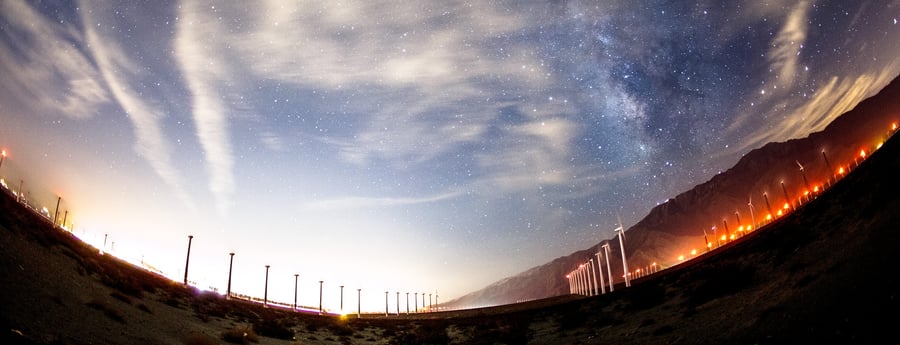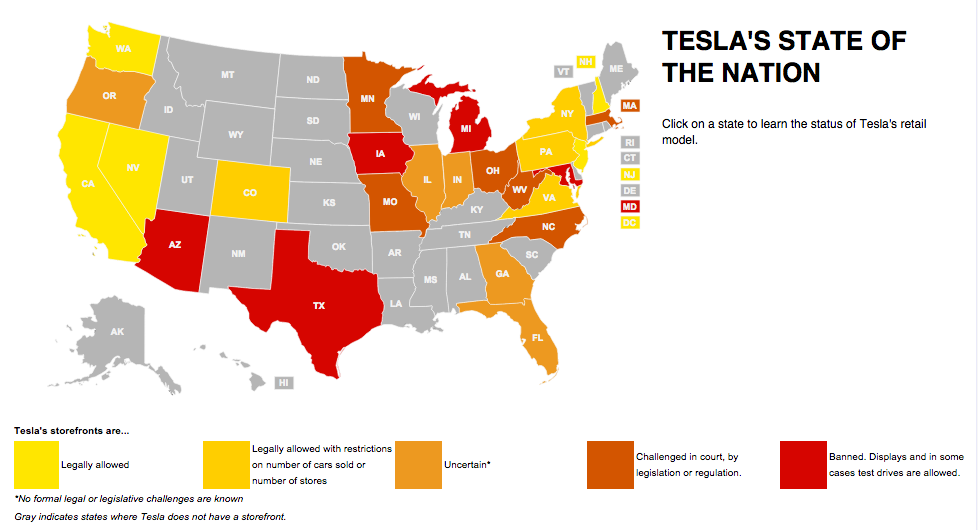
“If you wish to make an apple pie from scratch, you must first invent the universe.” That’s a quote from Carl Sagan’s groundbreaking Cosmos. To build an electrical grid for an imaginary “51st state” from scratch… well, the Solar Electric Power Association (SEPA) asked utilities and other stakeholders how they would go about it. Presumably they would also invent the universe first, but we’ll skip ahead a bit.
In its 51st State initiative, SEPA challenged stakeholders to imagine a hypothetical new U.S. state with no existing grid structure or regulations (so, not the District of Columbia). Gavin Bade, writing for Utility Dive, examined proposals from Arizona Public Service (APS) and two industry groups. Utility Dive’s article is worth reading in full (as are the plans from the stakeholders themselves) but it’s worth noting how much of what they propose is a “more of the same” model.
“Unsurprisingly, the one electric utility and two utility trade groups that submitted comments to the 51st State initiative envision a regulatory structure with relatively small changes to their business models,” Bade writes. In the views of APS, the Rural Electric Cooperative Association, and the American Public Power Association, “the existing regulatory framework for their companies has worked rather well in getting them to deliver reliable, low-cost electricity.”
That said, each of the stakeholders recognizes the need to incorporate distributed energy resources (DERs) into their models. APS, which recently brought the issue before the Arizona Corporation Commission, believes that utility-owned rooftop solar is the way to go.
“From the beginning, the utility outlines an aggressive model of rooftop solar ownership — one where the utility companies own DERs on the grid,” Bade writes. (See our posts on the issue, “Utility-Owned Rooftop Solar Could Be A Gamechanger – But Is It Fair?” here and here.)
In other unsurprising news, Tesla has been having a big year (and no, we’re not just saying that because we liked the April Fools’ announcement of the Tesla Model W—a revolution in vehicular watch technology). Late last month, Tesla won the hard-fought right to sell its vehicles directly to consumers in New Jersey (as well as winning most—but not all—of a speed test against a Ferrari). This week, the company saw good news and bad for its direct sales model. In Georgia, the state Senate voted to allow the electric car company to sell at five locations, instead of the prior maximum of three. In West Virginia, however, the company failed to amend a bill clarifying responsibilities between auto manufacturers and dealerships.
Good news for Georgians, bad news for West Virginians. Electric vehicles are gaining popularity in the Peach State. “The Atlanta metro region has the second-highest percentage of new electric car registrations in the country, and we anticipate that enthusiasm will only grow,” said James Chen, vice president of regulatory affairs for Tesla, to Automotive News. And the Mountain State? For now, the only Tesla you can visit is an unincorporated community in Braxton County.
At issue is the Tesla showroom sales model, which sells directly to consumers without going through franchised dealers. This model has run into problems in other states like Texas, where it now showcases – but does not sell – its cars through a “gallery.” Tesla’s Texas gallery stores cannot offer test drives, quote prices, or give out the company’s website.
Tesla insists they need direct salesmanship not just to sell cars but to educate consumers about the benefits of electric vehicles. “We strongly believe it is vital to introduce our own vehicles to the market because electric cars are still a relatively new technology,” the Tesla team explained in a 2014 blog post. “This [direct sales] model is not just a matter of selling more cars and providing optimum consumer choice for Americans, but it is also about educating consumers about the benefits of going electric, which is central to our mission to accelerate the shift to sustainable transportation, a new paradigm in automotive technology."
Warren Buffett disagrees. Buffett, who bought the Van Tuyl auto group—the fifth-largest U.S. auto dealership by sales—last October, apparently doesn’t think Tesla’s direct sales model has sticking power. “I would doubt if it [the direct-sales business model] picks up much steam,” he said in an interview with CNBC. “What Tesla does with it, we’ll find out. But I do not see the distribution system changing in any major way.”
To see how Tesla has fared in its direct-sales struggles to date, take a look at this infographic from Automotive News. [Click through to see the full details.]
Learn more about the advanced transmission and transportation industries, as well as the entire advanced energy economy, in our new 2015 Market Report. Click the button below to download.
Featured image, "Powering the Milky Way," courtesy of nate2b and used under a Creative Commons License.

